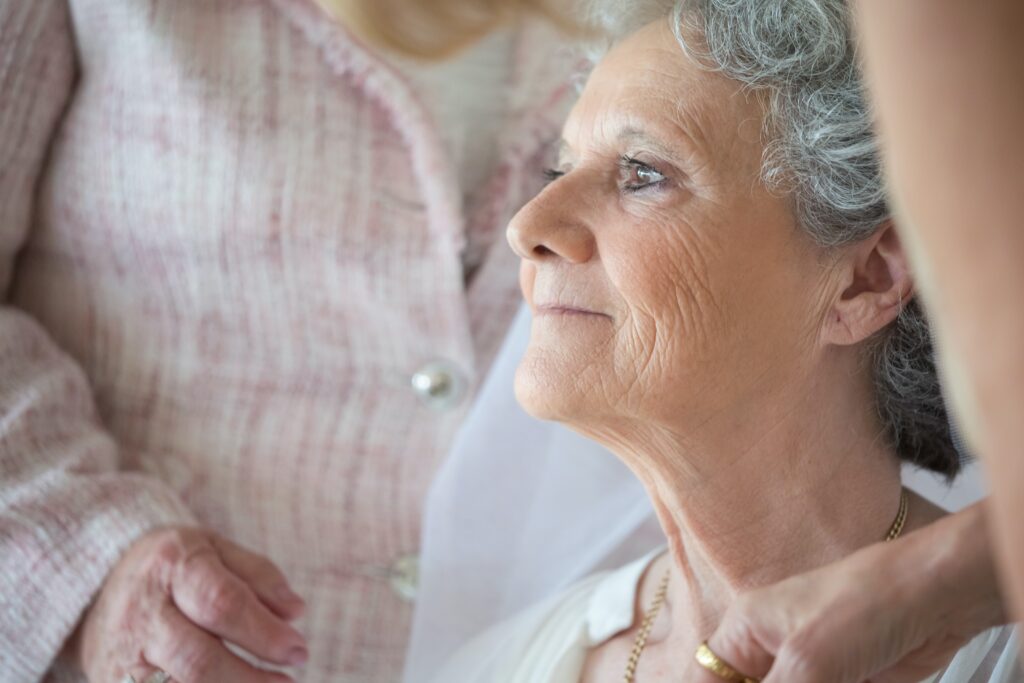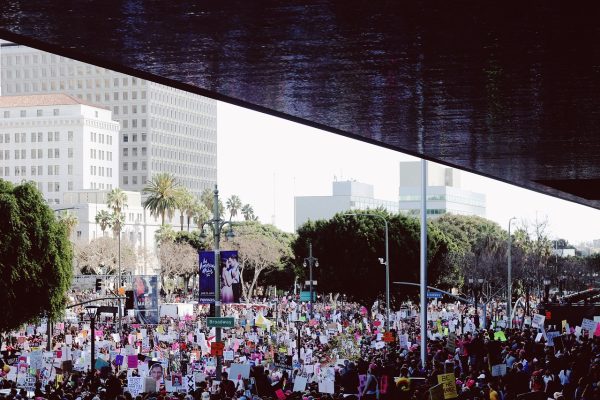Florida Scott-Maxwell wrote that old age can be experienced as “a desert in time.”1 Devoid of meaningful markers, empty of moments of connection, time can feel crushingly burdensome. For institutionalized elders, time can seem like a wilderness disconnected from past and future.
Rosh Hodesh provides a welcome relief to frail elders traversing this barren terrain. We have found that marking the start of each month of the Hebrew calendar enables nursing-home residents, Jewish women in their 80s and 90s, to live in a cycle of significant moments. When we sanctify the month’s onset, each moment within it takes on a location in time; we are anticipating the sacred moments ahead and savoring those past. With each passing month, we forge a thread of connection to our past and to our people’s future.
Most participants in our celebrations at the Home for the Jewish Aged of the Philadelphia Geriatric Center had never heard of Rosh Hodesh. A few women recount tales of mothers or grandmothers who refrained from housework on Rosh Hodesh or of fathers or grandfathers who enriched their daily prayer with Hallel, psalms of praise, in honor of the New Moon, but the personal connection is thin at best. Nonetheless, our monthly Rosh Hodesh gathering is treasured by the thirty or more women (and an occasional man) who attend regularly and who feel bereft on the rare occasion that poor weather or illness force cancellation.
Our Rosh Hodesh celebration is a novel creation, cobbled together from various women’s Rosh Hodesh rituals, traditional sources and our own innovations, the ritual has become a beloved minhag (custom) with a force all its own. This combination of old and new elements serves to evoke a lifetime of Jewish experiences, as well as to open new spiritual doors. Our Rosh Hodesh celebration reminds us of the power of ritual for women of all ages, and of the power of marking time in community.
THE RITUAL
Context
This ritual is conducted each month on the Thursday morning closest to Rosh Hodesh. The timing is determined by the availability of our volunteers, who are themselves older women bused to the Center from their homes in the community. Volunteers assist the nursing home residents to come to the celebration with wheelchairs, walkers and canes. The ritual is held in a dining room, with participants gathered around the perimeter of tables formed in a square.
Content
The ritual begins with the singing of Hallelujah, in gratitude for our sharing this special moment. This introduction is followed by the lighting of a round, moon-shaped candle. The leader says: “Just as the light of the moon, present now only as a sliver, grows toward fullness throughout the month, so may our lives grow toward fullness and satisfaction in the month ahead.”
We read Aaron Zeitlin’s poem, Create Me Anew,” as a reminder that Rosh Hodesh offers us a new beginning, a clean slate filled with only possibility, if we but seize it.
Next, we sing selections from Hallel, beginning with a simple Hallelujah—Hodu Lashem (Praise God, give thanks to God). Before we sing we take a moment to think of one thing for which we feel grateful to God as we gather together this morning. Participants are invited to share. Their contributions range from “I’m glad I woke up this morning and was able to come here”, to “I’m grateful my daughter survived surgery”, to “I’m grateful for my 99th birthday”, to “I’m grateful that the snow stopped”, to “I’m grateful to the staff who take care of me.” Holding these kavvanot (spiritual intentions) within us, we sing out from Hallel, songs of praise. We conclude our Hallel by reciting and repeating a few lines from Psalms.
The third segment of our celebration is a thematic orientation to and preparation for the month ahead. The form varies, including stories about holidays occurring in the new month, discussion of customs, including reminiscence about past experiences, exploration of thematic associations, and singing of songs related to the month’s holidays or themes. If they wish, participants may mention events in their lives, or the lives of their families, which will take place n the coming month.
We sanctify the month with a Rosh Hodesh kiddush, recited in Hebrew and English, and with blessing and eating baked goods and fruits which are round or crescent shaped.
We close our celebration with a blessing for the New Moon, adapted from the blessing traditionally recited on the Shabbat preceding the New Moon. The leader introduces the blessing, asking participants to think of something they are hoping or praying for on this Rosh Hodesh for themselves, their families, the Jewish people, or the world. The beginning of the blessing is chanted by the leader in Hebrew and English:
May it be Your will, our God and God of our mothers and fathers, that we be renewed in blessing in this month of __________, which begins on __________. May the month of __________ be a month of __________ [individual participants add their blessings, always beginning with “gezunt – health” and including such offerings as “peace for Israel and the entire world”, “patience”, “joy”, “parnasah – sustenance”, “a speedy recovery for my roommate:, “understanding”, and after each one, the community chants: “Amen. And let us say: Amen.”
Participants leave the celebration wishing one another a guten hodesh, a good month.
While these women are celebrating Rosh Hodesh, something amazing has happened: for this hour, they are not conscious of poor eyesight or hearing, of legs which no longer carry them or memories which are faulty at best. For this hour, these women are not dependent objects of care, but subjects of celebration, members of community. For this hour, these frail, holy beings have the power to give thanks, to look forward, to rejoice and to bless. In consecrating Rosh Hodesh, a community of elders has found an oasis in time.
1. Florida, Scott-Maxwell, The Measure of My Days, NY: Alfred A. Knopf, 1968.
Used by permission of author












